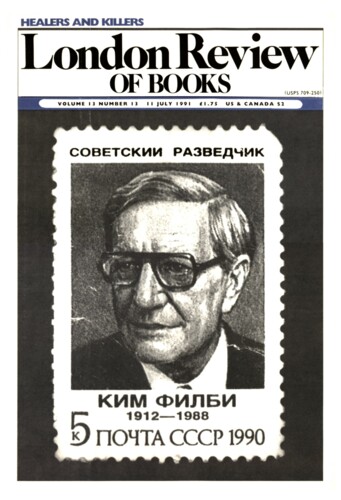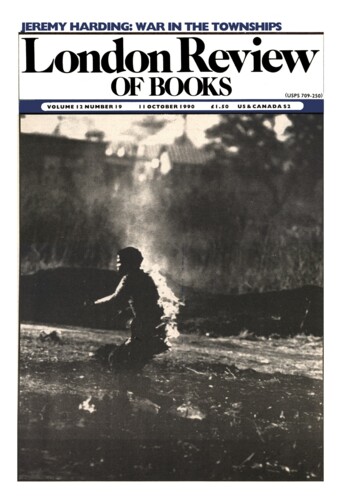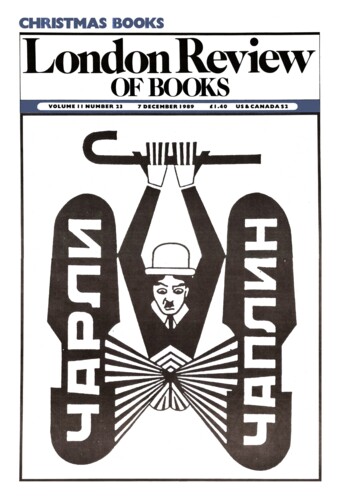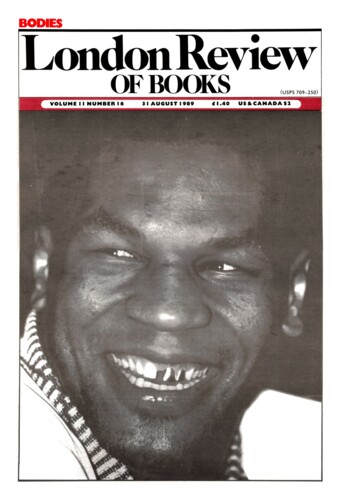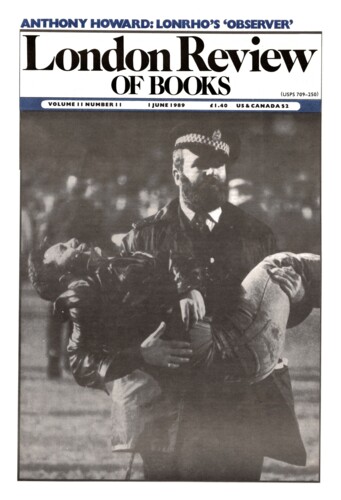Luck Dispensers
Penelope Fitzgerald, 11 July 1991
Amy Tan was born in San Francisco soon after her parents emigrated from Communist China. A few years ago she joined a Writers’ Circle, which told her, as Writers’ Circles always do, to write what she had seen herself. She wrote about what she had seen herself and what she hadn’t – her own experience and her mother’s She produced I long, complex and seductive narrative. The Joy Luck Club, which was one of the best sellers of 1989, The Joy Luck Club itself is a group of young wives, stuck in Kweilin during the Japanese invasion, who keep up their spirits by playing mah jong with paper money which has become worthless. All four of them escape to California, and one of them, as an old woman, wants to tell her Americanised daughter, who has ‘swallowed more Coca Colas than sorrows’, what happened to them, then and afterwards. But the story at best will be no more than a fragment of the whole memory – like a single feather from a swan that has flown.’
